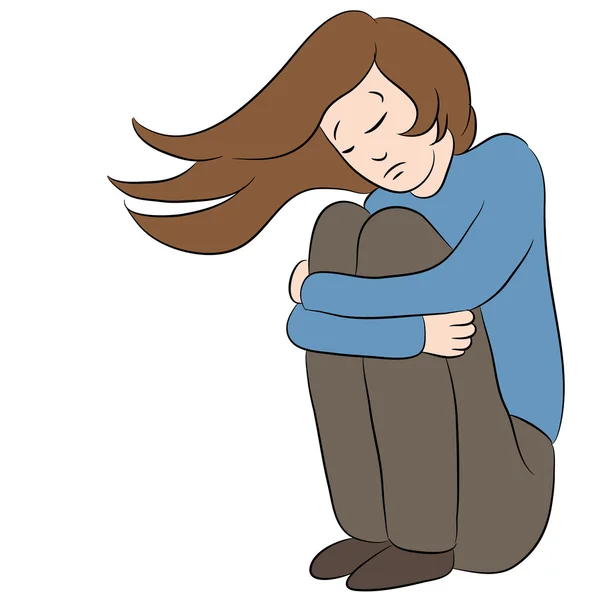Hopelessness is a feeling of despair and lack of motivation. It can cause severe mental health issues if it’s left untreated. So it’s important to understand what it is and how to manage it. In this blog post, we’ll go over the different types of hopelessness, their degrees, the causes behind them, treatment options, and more
Contents
What Is Hopelessness?
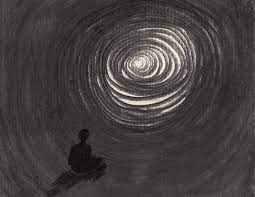
Hopelessness is a feeling of despair and lack of motivation. It can be caused by various factors, including mental health issues, traumatic experiences, or stressful life events.
When someone feels hopeless, they may feel like there’s no point in trying to improve their situation. Because things will never get better. This can lead to a downward spiral that can be difficult to break out of.
It can manifest in different ways depending on the person. Some people may feel a general sense of despair and apathy. While others may experience more specific symptoms such as suicidal thoughts or self-harming behaviors.
It can indicate several different mental health issues. Some mental illnesses that are characterized by feelings of hopelessness include major depressive disorder, bipolar disorder, schizophrenia, and substance use disorders.
The Hopelessness Scale

There is a measure called the hopelessness scale that can be used to assess how severely someone is affected by feelings of hopelessness. The scale consists of 20 questions, and each question is rated on a scale from 0-100, with 100 being the most severe.
The severity of someone’s hopelessness can be determined by taking the average score from all their answers.
- High scores indicate a greater degree of hopelessness,
- While low scores are associated with less severe cases.
Often, this scale is used by clinicians to measure the severity of someone’s feelings of hopelessness. It consists of 20 statements that ask participants to rate how much they agree with each statement on a scale from 0 (not at all) to 100 (completely).
For example, one of the statements might be “I feel I have nothing to look forward to.” People completing the scale would rate how much they agree with this statement on a scale from 0-100.
NOTE: The scale was developed by Dr. Aaron Beck, a psychiatrist who is known for his work in cognitive therapy and depression treatment.
Understanding Hopelessness
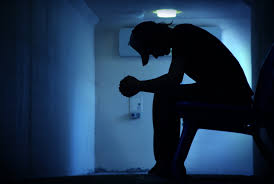
Symptoms
Several different symptoms come with feeling hopeless. Many people experience feelings of despair and lack of motivation when they’re feeling hopeless.
People who feel extremely hopeless may also have thoughts about suicide or self-harm. While others may engage in substance abuse as a way to deal with their negative emotions.
It’s important to keep in mind that hopelessness is different from sadness and grief, which are common feelings after a traumatic event. It can also be distinguished from pessimism or cynicism, as people who feel hopeful may still experience negative emotions such as depression.
Causes
There are many different causes of feeling hopelessness, including genetics/family history, environmental factors (such as bullying), mental health conditions, and traumatic life events.
Genetics/Family History
Some people may be more likely to experience such feelings due to genetics or family history. For example, if someone in your family has a mental health condition like depression, you may be more likely to experience feelings of hopelessness yourself.
Environmental Factors
Environmental factors such as bullying, abuse, and poverty can also lead to such feelings.
Mental Health Conditions
Mental health conditions such as depression, bipolar disorder, and anxiety are often associated with these feelings.
Traumatic Life Events
Traumatic life events such as the death or loss of a loved one, divorce, or natural disasters can lead to feeling hopeless.
Types
Based On Nature
There are three main types of hopelessness: cognitive, emotional, and behavioral.
Cognitive Hopelessness
It is the most severe type of hopelessness and usually develops in people who have had long-term depression or chronic stress for many years. It’s characterized by a feeling that nothing will ever change and things will never get better. This can lead to thoughts about suicide or death as an escape from pain.
Emotional Hopelessness
It is less severe than cognitive hopelessness and usually develops in people who have recently gone through a traumatic experience. It comes with intense feelings of sadness, despair, and worthlessness. These emotions can be very disabling and make it difficult to enjoy life or see any reason to continue living.
Behavioral Hopelessness
It is also less severe than cognitive hopelessness. It’s characterized by a lack of motivation to do anything, including making plans for the future or getting involved in activities that used to be enjoyable.
Based On Cause/Condition
There are three different types of hopelessness: Situational, Enduring/Intermittent, Chronic/Persistent
Situational Hopelessness
This type is usually the result of a traumatic event or series of events that are too difficult to cope with. For example, someone who has lost their job may feel situational hopelessness because they don’t see any way out of their current situation.
Enduring/Intermittent Hopelessness
This type usually comes with mental health conditions such as depression, bipolar disorder, and anxiety. People who experience this type of hopelessness may feel like they’re stuck in a cycle of negative thoughts and emotions that never seem to end.
Chronic/Persistent Hopelessness
This type is the most serious because it’s ongoing. Those who experience this type of hopelessness may feel like they will never be happy or there is no hope for the future.
Different Degrees or Levels
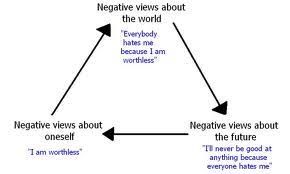
There are several different degrees and levels of hopelessness:
- Moderate (the person will not be as severely affected by their condition),
- Mild (the symptoms may still affect the individual’s life but they’ll be able to continue with daily activities),
- Severe (symptoms can interfere with a person’s life and their ability to function), and
- Extreme (the person is unable to live a normal life and may contemplate suicide).
How Hopelessness Can Affect Mental Health
When someone experiences such feelings, it can have a significant impact on their mental health. In some cases, hopelessness may lead to more serious mental health conditions such as major depressive disorder or bipolar disorder.
It can also worsen the symptoms of existing mental health conditions. For example, people with depression may feel even more hopeless about their future if they’re experiencing symptoms of depression such as low energy and difficulty concentrating.
Severe cases of hopelessness can also lead to increased suicidal thoughts and suicide attempts, which are very dangerous. Suicide is the number one cause of death for people between 15-29 years old in America today.
Coping With Hopelessness

Self-Help Tips
- If you’re not ready or able to see a therapist, there are still things you can do to help manage feelings of hopelessness:
- Talk to someone you trust about how you’re feeling.
- Write down your thoughts and feelings in a journal.
- Engage in activities that make you happy and bring joy into your life.
- Challenge negative thoughts by looking for evidence that disproves them.
- Focus on the things you can control and let go of the things you can’t.
- Take care of yourself both physically and emotionally.
Therapy
If you’re experiencing symptoms of hopelessness, it’s important to seek help from a professional. Many different types of therapy can be effective in treating this condition, including cognitive-behavioral therapy (CBT), dialectical behavior therapy (DBT), and medication.
CBT
The main goal of CBT is to help people change the way they think about their experiences and feelings, which can reduce feelings of hopelessness. Therapists will teach patients different coping skills such as problem-solving strategies so as to equip them better to handle difficult situations in the future.
DBT
The main focus of DBT is to teach mindfulness skills so that people can learn how to live in the present moment rather than dwell on negative thoughts about the past or future.
Medication
Doctors may prescribe antidepressant medications such as selective serotonin reuptake inhibitors (SSRIs) if they think a person has depression and hopelessness is one of their symptoms. It’s important to note that antidepressants can take up to eight weeks to start working, so it’s important to be patient and continue taking them as prescribed.
Comparing Hopelessness
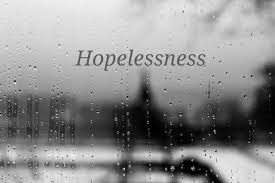
Hopelessness Vs. Cynicism
People who are feeling hopeless may often feel as if they’re incapable of achieving anything. Whereas those who are cynical know that they can achieve things but don’t believe it’s worth the effort to try.
Someone cynical knows deep down that there’s still hope and will continue looking for evidence to support their beliefs, whereas someone who is feeling hopeless has lost all hope.
Hopelessness Vs. Pessimism
Pessimism is the belief that bad things are going to happen, whereas hopelessness involves a deep-rooted feeling of helplessness.
For example, someone who feels pessimistic about their future might believe they’re not capable of achieving success in whatever field they choose to pursue. Someone who has lost all hope will no longer feel as if anything is possible.
Hopelessness Vs. Stoicism
Stoicism is the philosophy that holds that the best way to deal with difficult situations is to remain calm and rational. Stoic people don’t let their emotions get in the way of making logical decisions.
Someone who is feeling hopeless may not be able to think clearly or rationally due to the intensity of their feelings. Whereas someone who is stoic may be more likely to suppress their feelings to manage difficult situations.
Hopelessness Vs. Resignation
Resignation is the acceptance of a situation that we simply cannot change, whereas hopelessness involves giving up on all hope.
For example, someone who is feeling resigned about their current situation might still have some hope that things will get better in the future. Whereas someone who is feeling hopeless has given up all hope and believes that things will never get better.
Hopelessness Vs. Helplessness
Helplessness is the inability to take action, whereas hopelessness involves a deep-rooted feeling of despair.
For example, someone who feels helpless might not know where to start when it comes to taking action. Whereas someone who feels hopeless may feel as if there’s nothing they can do to change their circumstances.
Hopelessness Vs. Depression
One of the main differences between depression and hopelessness is that those with depression often lack energy, whereas people experiencing feelings of hopelessness might feel exhausted due to their intense feelings.
A person who is suffering from depression may feel helpless, whereas someone with hopelessness has given up on all hope.
However, the two conditions can co-occur and a person can experience both at once. So if you’re feeling depressed as well as hopeless, don’t hesitate to reach out for help.
Hopelessness Vs. Despair
Despair is a feeling of utter hopelessness and despondency, whereas hopelessness is just one component of despair. People who are feeling suicidal often feel both hopelessness and despair.
Despair can be a dangerous feeling because it can lead to suicidal thoughts and suicide attempts. Hopelessness, on the other hand, is a symptom of depression that needs therapy and medication for its management.
Talking To a Professional

If you’re experiencing feelings of hopelessness, it’s important to reach out for help. As you should not ignore these symptoms, they can get worse if you do not treat them. Reach out to a therapist or doctor today so that you can learn how to manage these difficult emotions in the future.
Conclusion
Feelings of hopelessness can be very debilitating and make it difficult to enjoy life or see any reason to continue living. If you’re experiencing symptoms of hopelessness, it’s important to seek help from a professional. Many different types of therapy can be effective in treating this condition, and many self-help tips can be helpful. Remember to focus on taking care of yourself both physically and emotionally, and don’t be afraid to reach out for help if you need it.
If you are looking for affordable Online Counseling MantraCare can help: Book a trial therapy session
